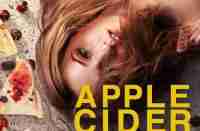Controversy over songs can help us evaluate our respective understandings of the past
When Electric Picnic rounded up earlier this month, undoubtedly one of the biggest talking points was the Wolfe Tones’ performance.
For a festival whose attendees tend to be very young, it might be surprising just how much buzz the Wolfe Tones, a band that’s been around for literally 60 years at this point, generated at EP, especially considering the other wildly popular and more contemporary acts in the line-up.
In fact, it seems evident the festival organisers themselves didn’t expect it, since the band were put in the Electric Arena to perform, instead of the main open-air stage. But the appetite for the Wolfe Tones was so great that not only did the venue quickly reach capacity, when it did, thousands of people continued to gather outside for the chance to hear the group live, with organisers commenting that the band drew the biggest crowd ever seen in the Electric Arena over its 18-year history.
But as surprising as many found it that the Wolfe Tones were able to draw such massive crowds at EP, this was not the biggest talking point to emerge about their act. Rather, it was one particular song performed on the day that took up most of the discourse.
The song in question is Celtic Symphony, and the fact of its performance being a point of widespread discussion is much less surprising than the Wolfe Tones’ popularity among EP-goers. After all, this song has sparked controversy after controversy time and time again.
At the end of last year, when the Irish women’s soccer team won 1-0 over Scotland, they came under fire for singing it in the locker room as they celebrated. This incident exploded into huge news at the time – for a moment almost becoming bigger news than the fact the win had qualified them for the World Cup – and so it’s the quickest one that comes to mind. But there have, of course, been endless examples of this song leading to backlash and controversy over the years, and always specifically because of one infamous lyric contained in it – “ooh, ahh, up the ‘ra”.
I don’t imagine it requires much explanation to understand why this line is so divisive. But it is worth noting that Brian Warfield (who wrote the song) has repeatedly clarified that the line is not some direct endorsement of the Provisional IRA, but a reference to graffiti he saw on the wall of Celtic Park in Glasgow that read “we’re magic, up the Celts, ooh, aah, up the ‘Ra”, which, according to Warfield, refers instead to the old IRA.
That said, there are those who are not satisfied or convinced by Warfield’s explanation, and of those who are, there are many who think that in any case, a statement like “ooh, ahh, up the ‘ra” is offensive regardless of the context. And again, it’s no wonder why.
When the song was performed at Electric Picnic and the thousands of fans in attendance sung along to the line, it prompted a lot of media discussion over whether young people are wholly uneducated or insensitive when it comes to the realities of the Troubles. (Bertie Ahern was among those who suggested young people ‘educate themselves’ on Irish history… to which one commenter suggested they start with the Mahon Tribunal). But others found this line of thinking a bit patronising and indeed flawed, since going to educate yourself on what the lyric “ooh, ahh, up the ‘ra” means will just lead you to Warfield’s assertions that the line’s not about the Provisional IRA at all.
In any case, after a few days, the discourse following the Wolfe Tones performance at EP began to die down. But it was something I couldn’t help but be reminded of as I saw headlines following Ireland’s recent rugby win about Zombie by the Cranberries being sung in the stands in France, this a song that has become a sort of unofficial anthem ever since Dolores O’Riordan’s death in 2018 prompted it to be sung at Limerick matches, then Munster ones, and so on.
Celtic Symphony is a song I feel is pretty much expected to spark controversy any time it’s sang in any high profile context. That’s the nature of mentioning “the ‘ra” in your lyrics. And I guess it only follows then that a song like Zombie would do the same, since it explicitly delves into the topic of the Troubles and was literally written in response to a 1993 IRA bomb attack in Warrington which claimed the lives of two children.
But while I was not really surprised to see headlines about the “up the ‘ra” lyric follow in quick succession to headlines about the Wolfe Tones at EP, I was a bit taken aback when similar controversy was prompted by fans singing Zombie at the Rugby Wold Cup. Not just because one is argued as coming across as supporting the Provisional IRA while the other is written out of direct condemnation for the same group, but because I personally had never interpreted Zombie as anything other than a peace song that took the fall-out of the Troubles seriously.
The main lyrics that people seem to take issue with are “It’s not me/It’s not my family”. Some believe this implies indifference to the suffering of Northern nationalists, but O’Riordan herself explained that these lines were about her feeling offended that the PIRA claimed to be carrying out atrocities in the name of Ireland – “The IRA are not me… When it says in the song, ‘It’s not me, it’s not my family,’ that’s what I’m saying. It’s not Ireland, it’s some idiots living in the past”.
Commenters have also taken issue with the lyrics “in your head, they’re still fighting”, suggesting they imply that the grievances of nationalists were all “in (their) heads”. But personally, I have never interpreted O’Riordan as talking to nationalists in general here – the song is condemning the Provisional IRA specifically, and this does not (and should not) imply condemnation of nationalists in general, or a lack of sympathy towards their grievances.
More than anything, the message of Zombie is about condemning needless violence against innocent people. It is, at its core, a peace song… or at least that’s how I’ve always interpreted it.
For both Celtic Symphony and Zombie, regardless of the explanations given by Warfield and O’Riordan respectively, people’s own interpretations are going to differ. There will be those who think certain lyrics are offensive and insensitive, those who think certain lyrics are brilliant and worth standing behind, and those who think all discourse is an exercise in pearl-clutching or a big hullabaloo over nothing.
But whatever people’s opinions, surely both the enduring popularity of these two songs and the fact that they both continue to elicit such emotional reactions from people decades after their releases can, if nothing else, show us how ever-present the Troubles and the journey towards peace are in the collective consciousness.
Appearing on the Late Late Show recently, former president Mary McAleese said “it’s undeniable” that demographics are shifting towards a United Ireland. There is a huge amount of people who think it’s not a question of if, but when. This may well be the reason we are seeing controversies about these sorts of songs more and more recently, because it’s a topic that’s becoming more and more relevant again. So instead of having debates over whether certain songs are okay or not, these controversies might be opportunities to evaluate our respective understandings of the past and confront difficult histories so we can ultimately work toward a more harmonious future – whatever that may look like.






